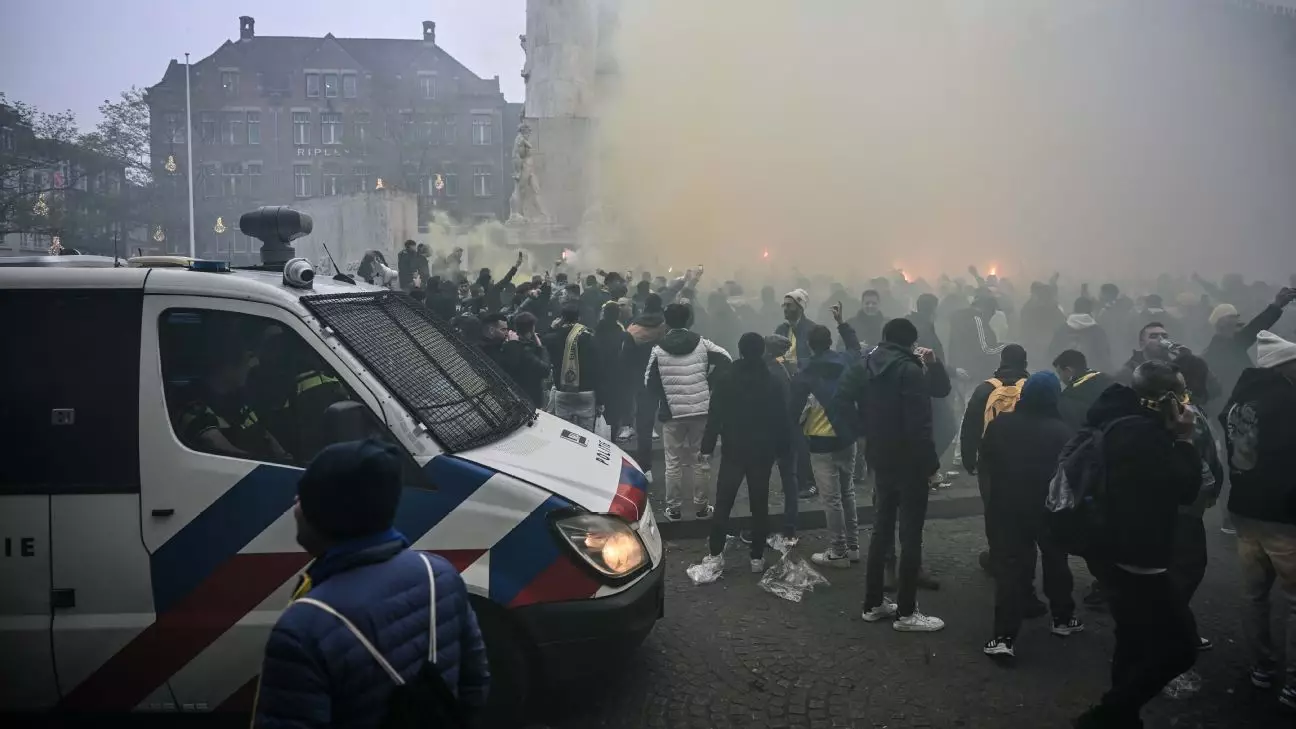The forthcoming Nations League soccer match between France and Israel is mired in controversy and uncertainty, particularly regarding fan attendance. Defender Dayot Upamecano expressed understanding for the anticipated low turnout, revealing a troubling yet realistic picture of the current state of affairs. According to French media reports, the attendance may reach a mere 20,000 spectators in an expansive Stade de France, which can host 80,000. This reflects a significant decline in interest and poses questions about the broader implications for international sports amidst geopolitical tensions.
Security Concerns and Political Climate
The match’s backdrop includes a heightened security presence, with 2,500 police officers stationed around the stadium and additional support across Paris. Such arrangements underscore the delicate nature of the event, made more complicated by recent violence involving Israeli football fans in Amsterdam. Reports of protests targeting Maccabi Tel Aviv supporters, alongside anti-Israeli propaganda, have exacerbated fears and led to a call from Israel for its citizens to refrain from attending international events where they may face hostility. This climate of fear is directly impacting attendance, as indicated by a survey conducted by the French supporters’ group Les Irreductibles Français, highlighting that a substantial portion of its members cite security as a primary concern for not attending the match.
Fans’ Sentiments and Reflections on Conflict
The survey results reveal insightful divisions among potential attendees. Around 15% are opting out due to their stance on the ongoing conflict between Israel and Gaza, while others mention security issues or practical constraints. Upamecano acknowledged this diversity of thought, reaffirming the players’ commitment to focus on their performance on the field rather than the external turbulence. His comments reflect a desire to prioritize the sport, even amidst the noise of conflict and discord.
Moreover, sentiments shared by Upamecano on the subject of peace highlight an essential conversation within sports culture – the relationship between athletics and sociopolitical issues. Despite the fervent environment that often engulfs international matches, the hope for peace remains a poignant aspiration for many, including athletes who revel in the sport. Upamecano’s personal affinity for football resonates with countless individuals who see sports as a means to unite rather than divide.
On a competitive level, France stands second in their Nations League group, while Israel struggles at the bottom without a single point. The disparity between the two teams adds an additional layer of tension to the match, with France’s strong performance contrasting sharply with Israel’s challenges. Looking ahead, UEFA has decided to relocate the Europa League match between Besiktas and Maccabi Tel Aviv to Hungary amid the growing concerns, demonstrating the potential impact of political and security considerations on the world of sports.
The match is set against a backdrop of complex dynamics that transcend the game itself, calling into question the role of sporting events in a turbulent world. This situation underscores how deeply intertwined sports and global affairs can be, transforming what should be a celebration of athleticism into a reflection of societal strife.

